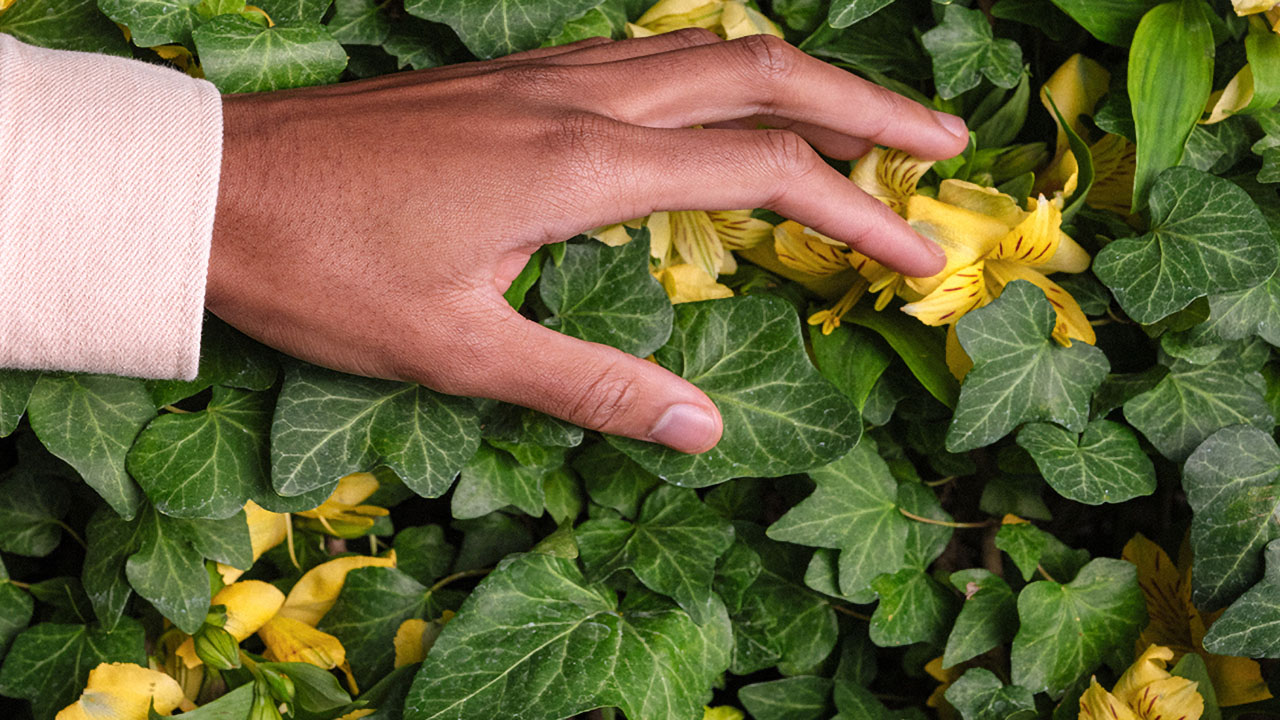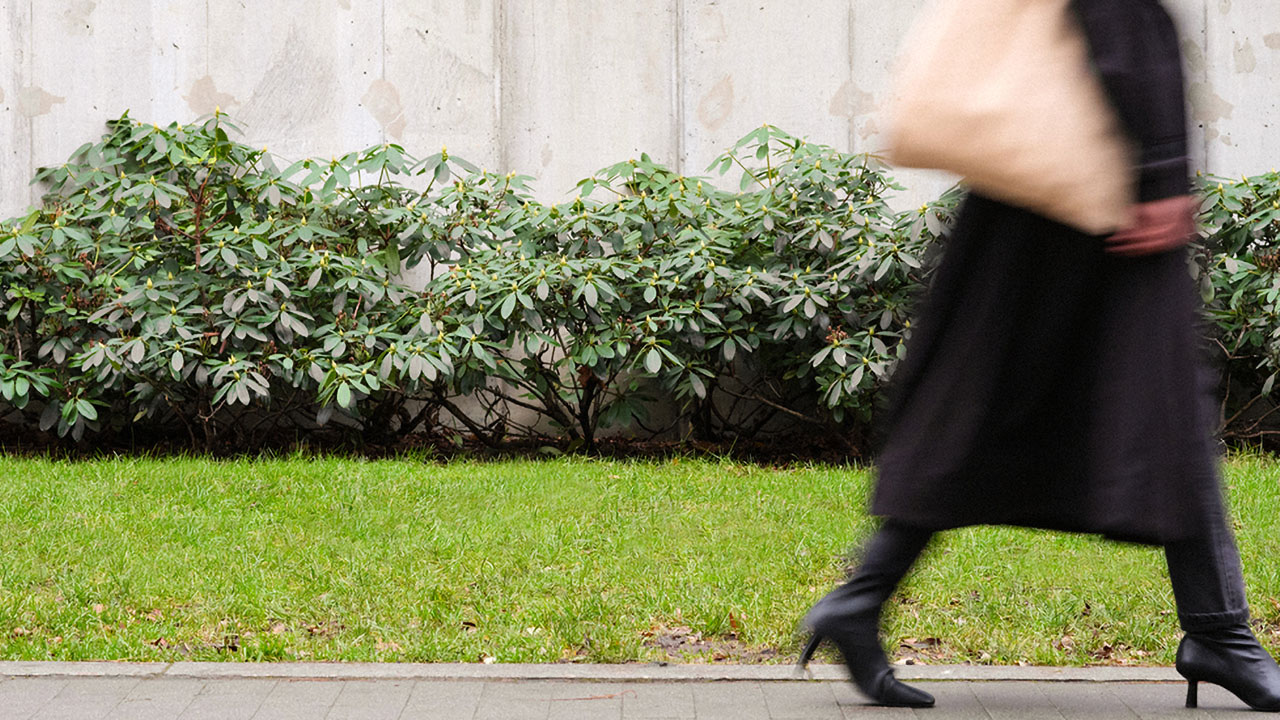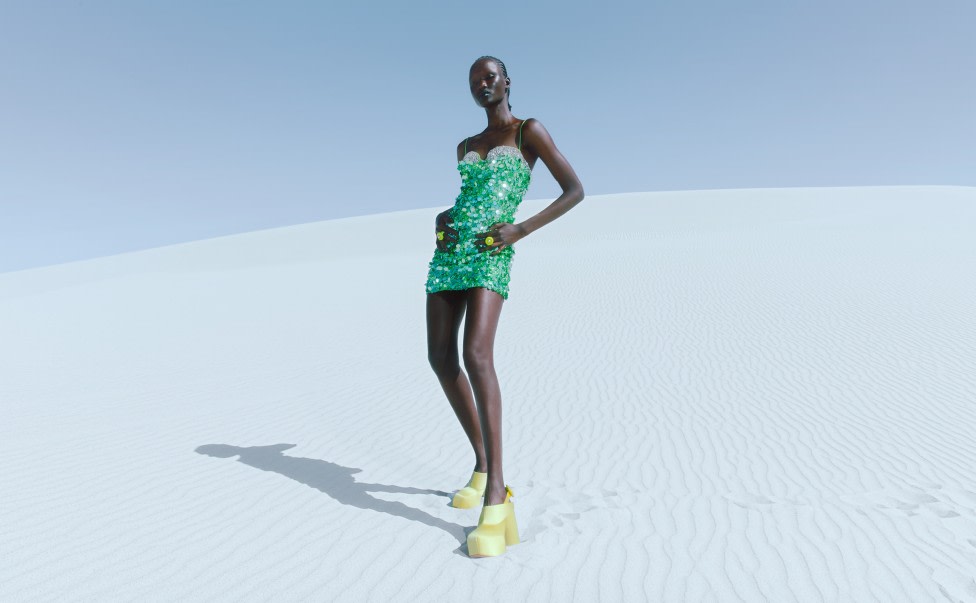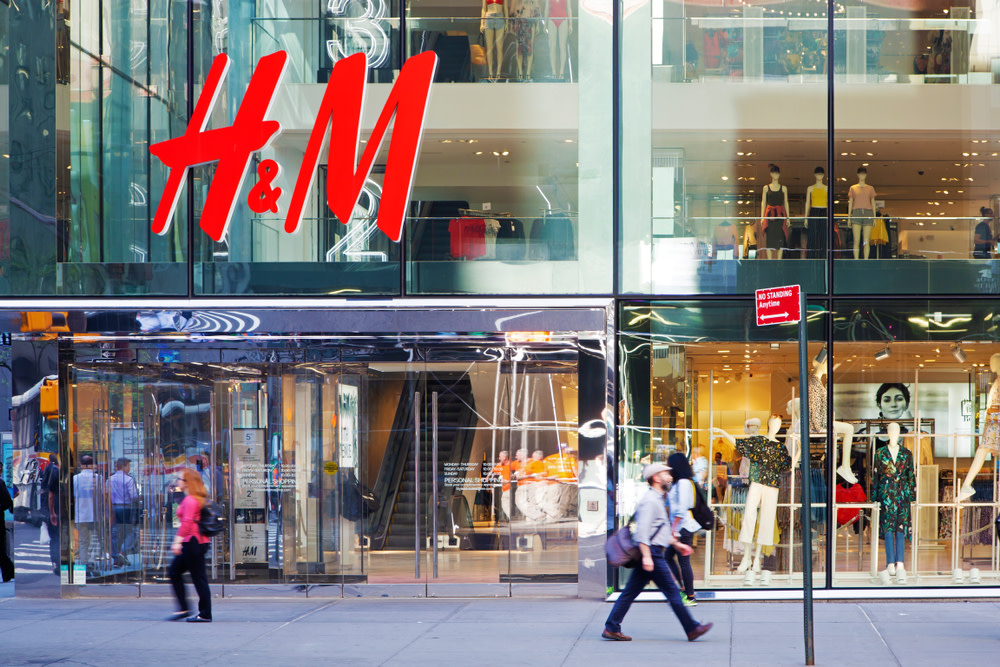Guide to the Best Vegan Clothing Brands: All You Need to Know
H & M Hennes & Mauritz AB (publ)

An increasing number of shoppers are embracing compassionate fashion by opting for high-quality, animal-free clothing and accessories. If you want to have a positive impact on animals and the environment, this guide will assist you in identifying the best vegan fashion brands selling vegan-friendly clothing, and avoiding materials derived from cruelty in your wardrobe.
Let’s delve into common animal-derived materials and explore the cruelty-free alternatives provided by different clothing brands.
Why Choose Cruelty-Free Vegan Fashion?

Ethical Treatment of Animals: Animal-derived materials involve immense suffering and exploitation. By choosing cruelty-free fashion, you can stand against the inhumane practices prevalent towards farm animals in the fashion industry.
Environmental Impact: The leather industry, for instance, is known for its heavy carbon footprint and the pollution caused by tanning processes. Opting for alternative materials reduces environmental harm and supports eco-friendly practices, contributing to overall sustainability while becoming carbon neutral.
Sustainability: Cruelty-free fashion encourages the use of sustainable materials like organic cotton, recycled polyester, and innovative plant-based fabrics. These materials are kind to animals and gentler on the planet.
Innovation and Fashion Forward: With advancements in technology and design, cruelty-free materials have become fashion-forward and trendy. This type of leather, for example, offers a plethora of options in terms of colors, textures, and styles.
Top Cruelty-Free and Vegan Clothing Brands

Here’s a list of some of the best vegan fashion brands that are leading the way in cruelty-free fashion. These brands not only avoid the use of animal products but also focus on sustainability by incorporating recycled materials, including vegan fabrics and other innovative materials.
1. Stella McCartney
Stella McCartney is a trailblazer in the world of luxury fashion. The cruelty-free international brand is known for its commitment to sustainability and the use of vegan, eco-friendly materials, and recycled plastic in its products. The brand was founded in 2001 with the core principle of being environmentally conscious while maintaining high fashion standards and producing timeless pieces of clothing. Stella McCartney has set the bar high by refusing to use leather, fur, feathers, or skins in any of their products, demonstrating that luxury can be achieved without harming animals.
Stella McCartney's dedication to sustainable practices has resonated with consumers and the broader industry. A report by Boston Consulting Group noted that luxury brands adopting sustainable practices could see a 25-30% increase in profitability by 2030.
2. Vaute Couture
Vaute Couture made history as the first all-vegan fashion brand to showcase at the New York Fashion Week in 2013. Founded by Leanne Mai-ly Hilgart, the brand aims to prove that high fashion can be 100% animal-free and sustainable. Vaute Couture combines innovation in design with a deep commitment to ethical production.
Vaute Couture has inspired a new generation of vegan fashion brands and has garnered significant media attention, including features in Vogue, The New York Times, and Forbes. According to a 2021 report by The Vegan Society, the global market for vegan fashion is expected to reach $7.8 billion by 2027, reflecting a growing demand for brands like Vaute Couture.
3. Noize
Noize is a Canadian brand that has become synonymous with stylish, cruelty-free outerwear. The brand offers a wide range of jackets and coats made from vegan and sustainable materials, positioning itself as a leader in the vegan fashion market. Noize specializes in vegan outerwear, offering a range of jackets and coats made from recycled polyester and other sustainable materials, including recycled plastic bottles.
Noize has experienced rapid growth, with the brand's revenue increasing by over 200% between 2018 and 2022, as reported by Fashion Network. This success is a testament to the increasing consumer demand for ethical and sustainable fashion options. According to the 2023 Global Consumer Trends report by Euromonitor, 60% of consumers are willing to pay more for eco-friendly products, highlighting the potential for brands like Noize.
4. Wills Vegan Store
Wills Vegan Store is a go-to for ethical consumers looking for vegan shoes and accessories. The brand emphasizes the use of recycled materials and eco-friendly methods in its entire production process. The brand was founded in 2012 by Will Green with the mission to make vegan fashion accessible and desirable to everyone.
Wills Vegan Store enjoys a customer base that spans over 80 countries. According to a 2022 report by Grand View Research, the global vegan footwear market is expected to grow at a CAGR of 6.6% from 2023 to 2030, driven by the increasing demand for products like those offered by Wills Vegan Store.
5. Bleed Clothing
Bleed Clothing is a German brand that offers a huge range of sustainable fashion made from innovative materials. Founded in 2008, Bleed Clothing is dedicated to creating ethical, eco-friendly, and 100% vegan clothing without compromising on style or quality.
Bleed Clothing has received numerous awards for its sustainability efforts, including the PETA Vegan Fashion Award and the Green Product Award. According to a 2023 report by Statista, the global market for sustainable fashion is expected to reach $150 billion by 2025, with brands like Bleed Clothing playing a significant role in this growth.
Beyond Clothing: Cruelty-Free Vegan Brands for Accessories, Home, and Lifestyle
Cruelty-free fashion extends beyond clothing to accessories like bags, shoes, home & living, and jewelry. Just like with clothing, you can find stylish and ethical alternatives for these items as well.
Vegan Handbags: Many designers now offer stunning vegan tassen made from materials like polyurethane, recycled plastics, or cork. These alternatives are not only chic but also durable and sustainable. Some eco-friendly products even utilize plastic waste, turning discarded fishing nets and other plastic debris into regenerated nylon for handbags. Brands like Matt & Nat and Angela Roi are leading the way in creating fashionable, cruelty-free bags that don’t compromise on style.
Ethical Shoes: Vegan leather shoes have become a popular choice, but you can also find cruelty-free options made from canvas, hemp, or natural rubber, ensuring a wide variety of vegan schoenen. These alternatives are not only kind to animals but also comfortable and stylish. You can find out the list of ethical footwear brands here.
Eco-Friendly Jewelry: Look for jewellery made from recycled metals, wood, glass, or synthetic gemstones to avoid supporting the mining and exploitation of precious resources. Brands like SOKO focus on sustainable practices, ensuring that their jewelry is as kind to the planet as it is to your style.
Home and Living: While cruelty-free fashion is crucial, our commitment to sustainability shouldn’t stop at what we wear. Home and living brands are also making significant strides in offering products that are both eco-friendly and animal-friendly. Brands like Sheets & Giggles offer 100% eucalyptus lyocell bedding. Eucalyptus lyocell is a sustainable fabric known for its softness and breathability, making it an excellent alternative to conventional cotton. The brand sources its eucalyptus from responsibly managed forests, using far less water than traditional cotton and ensuring a cruelty-free, eco-friendly product.
Identifying Cruelty-Free Brands
Finding cruelty-free brands can sometimes be a challenge, as not all companies are transparent about their sourcing. However, a few key indicators can help you make ethical choices:
Look for Vegan Certifications: Certifications like PETA’s “PETA-Approved Vegan“ label or “Vegan Society” logos are reliable indicators of a brand’s commitment to cruelty-free fashion.
Research and Reviews: The internet can be a valuable resource for finding information about brands and their ethical practices. Check for reviews, social media comments, and ethical fashion blogs to learn more about brands using recycled materials.
Contact the Brand: If you’re unsure about a brand’s cruelty-free status, don’t hesitate to reach out to them directly. Ethical companies will gladly provide information about their sourcing and use of recycled materials.
Also Read: 13 Sustainable Designers And Luxury Fashion Brands You Need To Know
Which materials are not vegan?
Leather and Exotic Skins
Leather is derived from animals such as cows, pigs, goats, and even more exotic creatures like kangaroos, ostriches, cats, and dogs. Exotic skins, such as snakes, alligators, and crocodiles, are used to create luxury items like handbags and shoes.
What are the concerns?
Leather is a byproduct of the meat and dairy industries, which inflict immense harm on animals and the environment. The leather production process involves the use of toxic chemicals leading to carbon emissions that pollute our planet, moving us farther and farther away from becoming climate positive. Furthermore, it is unnecessary to harm animals for the sake of fashion.
Alternatives in brands and materials
Thankfully, many popular brands now offer “vegan leather” options. These cruelty-free alternatives are made from materials such as microfibers, recycled nylon, polyurethane (PU), and even plant-based sources like mushrooms and fruit, often used in innovative ways. Look for animal-free leather at esteemed stores such as Topshop, Stella McCartney, and bebe. Additionally, consider supporting a vegan shoe brand that focuses on sustainable materials and ethical practices
Wool, Shearling, Cashmere, and Angora
Wool is derived from sheep or lambs, whereas shearling refers to lamb skin with the fleece intact. Cashmere is obtained from Cashmere goats, and Angora wool comes from rabbits.
What’s the issue?
The shearing process inflicts suffering upon sheep, and the wool industry contributes to environmental damage. Similarly, the production of cashmere, Angora, and shearling involves cruelty towards goats, rabbits, and lambs.
Brands and Alternatives to Embrace
Discover snug and compassionate sweaters crafted from vegan materials at popular retailers such as H&M, Nasty Gal, and more. Linen is another excellent alternative, known for its durability and eco-friendliness. Innovative designers like Joshua Katcher and Leanne Mai-ly Hilgart offer high-quality, cruelty-free alternatives like twill, cotton, and recycled polyester (rPET), made from sustainable materials that are more environmentally friendly than wool. Additionally, consider cruelty-free vegan shoes made from synthetic leathers and eco-friendly materials, which align with a vegan lifestyle while maintaining style and durability in footwear.
Also Read: Top 9 Sustainable Plus-Size Clothing Brands in 2023
Fur
Fur is the skin and coat of animals such as bears, beavers, cats, foxes, minks, and rabbits, among others.
What’s the issue with it?
Animals raised on fur farms endure deplorable conditions, confined to cramped cages and subjected to cruel methods of killing. Whether obtained from fur farms or through trapping, each fur item represents immense suffering and loss of life.
Brands and Alternatives to Consider
Prominent brands like Gap Inc., H&M, and Zara have embraced fur-free policies, and renowned designers like Gucci and Michael Kors have also banned fur. Faux fur, often made from synthetic materials, is a widely available and popular alternative, offering a compassionate and stylish choice for consumers. Additionally, many ethical footwear brands are now using recycled rubber to create eco-friendly and cruelty-free shoes.
Also Read: How Sustainable Fashion Will Look In 2023
Silk and Down Feathers
Silk, a fabric produced by silkworms for their cocoons, and down feathers, derived from geese and ducks, are commonly used materials. However, there are ethical concerns associated with their production.
What’s the issue?
Silkworms in silk production are boiled alive, resulting in their pain and suffering. Similarly, down feathers are often obtained through painful plucking, and their production is linked to the foie gras and meat industries.
Brands and Alternatives to Consider
To address these issues, there are alternative materials and brands to consider. Satin, nylon, milkweed-pod fibres, silk-cotton tree, and ceiba tree filaments, polyester, rayon, and hemp are viable substitutes for silk. Brands such as Express, Gap Inc., and Nasty Gal offer silk-free options, while WAMA Underwear provides hemp-based and silk-free underwear. Additionally, synthetic materials are used in the production of down-free puffy jackets.
By opting for these alternatives, we can make more ethical and sustainable choices without compromising on style and quality, ensuring our products are cruelty-free.
Also Read: ESG Voices: Circular Fashion - You Are What You Wear
The Power of Your Choices
As a consumer, you hold the power to drive positive change in the fashion industry by choosing vegan clothing and accessories. Every time you choose cruelty-free clothing and accessories, you contribute to a shift towards more ethical practices. Supporting brands that prioritize compassion and sustainability sends a clear message to the industry that animal exploitation is not acceptable. For instance, opting for vegan sneakers made from sustainable materials is a great way to support ethical and eco-friendly fashion choices.
So to sum up, embracing cruelty-free fashion is a meaningful way to express your values and stand up for animals and the environment. By making informed choices and supporting ethical brands that use sustainable materials, you become part of a growing movement that seeks to transform the fashion industry into a more compassionate and responsible force. Let’s embrace cruelty-free fashion and pave the way for a brighter and kinder future, where we embrace and work toward establishing an unrivaled circular economy.
Frequently Asked Questions
What clothing companies are cruelty-free?
Numerous clothing companies prioritize animal welfare. Among the most popular ones are Aritzia, Everlane, H&M (select products), Madewell, Naadam, PacSun (select products), Patagonia, Revolve, and Uniqlo. These brands uphold a cruelty-free approach, refraining from conducting any form of animal testing, both directly and indirectly as attributed by PETA. Furthermore, they ensure that their products are not sold in countries where animal testing is mandated by law.
Is Zara vegan and cruelty-free?
Zara does not adhere to vegan and cruelty-free standards. They incorporate animal products in certain clothing and accessories, lacking an explicit policy against animal testing. Consequently, there is a possibility that their products undergo testing on animals.
Is H&M vegan-friendly?
While H&M offers vegan options, it's important to note that not all of their products fall into this category. Since H&M lacks a specific vegan policy, it becomes challenging to determine definitively whether a particular product is vegan. However, H&M does provide a list of vegan products on their website, offering clarity to those seeking animal-friendly choices.





